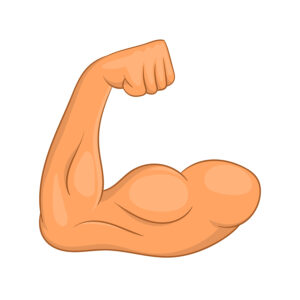I just got diagnosed with adult ADHD. Now what?
So you’ve been struggling with attention, have been procrastinating for years, maybe you lost your car keys or misplaced your wallet and you were late for that important meeting. You might have even forgotten to pick up the kids once or twice. Your mind is racing, and you have no less than 10 things going through your head simultaneously. You’re a busy person but also seem to get nothing done at the same time. Your desk is a mess, and you can’t find any organized solutions for your life or your business. Sound familiar?
You finally decided to ask your doctor for some advice and your doctor suggested seeing an ADHD specialist. And you found out what you’ve been thinking for some time. You have ADHD and you now have an official ADHD diagnosis.
First of all welcome to our tribe. I say this because so many adults struggle with various aspects of their life and even their business and are always asking that question- “What is wrong with me?” In many cases when you receive a diagnosis of ADHD it is a huge relief and answers many questions you may have been asking yourself for years.
However, let’s make something very clear right now. There is absolutely nothing wrong with you. You and many others were just born with a different brain. Your wiring is different, you think differently, in your brain processes information somewhat differently than others without ADHD. Again, there is nothing wrong with you.
My new video program is out!
Were you just diagnosed with adult ADHD?
Or would you just like a road map for areas of life to focus on?
If I were diagnosed with ADHD again, these are the parts of my life I would focus on.
Click here to start this very affordable program!
Give yourself some credit
Just because you have been diagnosed with ADHD does not mean that you were handed a list of things you cannot do. For example, many people with ADHD are time blind, have issues with time, and are always late for everything. Me? I am rarely late. I grew up in a family where my father was in the military, and we were early for everything. It was ingrained in my brain early on that we would be on time. However, some people say I do not have ADHD because I do not have issues with time for the most part.
You need to give yourself some credit and tell yourself that you actually can do things rather than cannot do certain things. You can be on time, finish projects, and get a ton of work done when you’re in the mood. You can stay focused on projects at work in home, and you can stay married to the same person for an entire lifetime. Don’t let anybody tell you that you can’t do something.
I know what you have been through
I was an absolute train wreck as a child. I was as hyper as they come, totally unfocused, and had more than my share of emergency room visits and bad report cards. I’m pretty confident that I drove my parents crazy when I was growing up. And growing up in the 1960s, they were offered little answers about why I was the way I was. I had attention deficit hyperactivity disorder, but many in the medical field as well in schools were not educated as to how to handle children like myself during that time. Many of us crashed and burned. But many did well in school but struggled in other areas.
I attended a vocational school in Massachusetts for high school. We went to shop one week, and the next week we had academic classes. My working memory was so shot, but by the time I got to academic weeks, I walked around the hallways because I had no idea what class I was supposed to be in. And I was given little support or accommodations to help me through those years. I couldn’t get out of school fast enough.
An interesting development at that age, when I did finally get out of high school, that’s when I began to thrive and actually have a drive in life to do well. I just didn’t like school. I know doctors, attorneys, and many other professionals that have ADHD. I’ve interviewed many of them. But for me, I really feel the school was holding me back. I went to night college for a few years, but finally had enough and just needed to stay in the business world and get the experience that way.
What kind of support is there for adults with ADHD?
Despite what you might see, I do feel that there is a lot of support out there for children with ADHD. Many may disagree, but if you look in the right places you can find that support. The attention is more on kids than adults and it may have something to do with the fact that many still feel that you grow out of ADHD.
For adults with ADHD, the support is there but you might need to look just a little bit harder. Unlike when I grew up, there is much more awareness about children with ADHD. But I feel adults need to try a little harder to find exactly what they’re looking for.
But the support and resources are available for adults with ADHD. From coaching to podcasts to books YouTube channels and other resources in the medical community, you can find the help and support you need.
And sometimes just listening to podcasts about adult ADHD, can help you and let you know there are other people out there who share your challenges as well as gifts.
If you are struggling, don’t go it alone!
Find out more about Dave’s online program, ADHD, Time, and Overcoming Distractions.
Books you should read if you have adult ADHD.
There are many great books about adult ADHD out there, and I suggest reading a few to get in tune with the ADHD community and find out a little bit more about yourself. I think if you read some of these books, you begin to see similarities in the stories and descriptions and ultimately, I think you’ll have a few Ah-Ha moments in the process.
But not all books I recommend are about ADHD. You’ll see why below.
Driven to Distraction by Ned Hallowell MD put ADHD on the map several years ago. It’s considered to be one of the best books on ADHD anywhere. Doctor Hallowell weaves stories in real-life examples and when you read these you can relate to yourself in many ways. Driven to Distraction helped many with ADHD, many in the medical community, as well as educators, get a better grasp on individuals with ADHD.
The ADHD Advantage by Dale Archer MD is another great book to read if you want to learn more about the positive aspects of adult ADHD and see how certain entrepreneurs and others thrive with having ADHD. Having adult ADHD can be an advantage in business if you mitigate the negatives and home in on the positives. And Doctor Archer goes through how you can harness the power of having a different brain. With real-life stories and examples, he shows you that having adult ADHD is not as bad as it seems.
The Gifts of Imperfection written by Brené Brown is another book everyone with ADHD should read. The book has nothing to do with attention deficit hyperactivity disorder, but the book gives you comfort and knowing that everyone is imperfect in this world. I feel that anyone who reads this book walks away understanding themselves a little better and can accept the fact that we all have different brains in some way. What I also like about this book is it is a relatively short read and very engaging. I highly recommend reading this book.
Atomic Habits by James Clear is another must-read book if you have adult ADHD. We used to think that setting huge goals and taking what many call massive action was the key to success. But what James Clear talks about in his book Atomic Habits is that by creating tiny habits and moving forward slowly each and every day, you begin to achieve great things. These tiny habits over time get ingrained in our way of thinking and hopefully become permanent. If you want to change your ways in life and in business, this book needs to be read. And I’m confident that even in the first two to three chapters you will gain valuable insight into developing effective habits for your life.
Brain Hacks by Lara Honos-Webb. This book helps you understand your executive functions on a much deeper level. From attention and focus, planning and organization emotional regulation, and many more. This book will get you in tune with your executive functions. Most people with ADHD have challenges with their executive functions. This book does a great job of laying them out and shows you how to implement strategies to help you plan better, focus better and understand your motivations to benefit you in life and in business.
How Champions Think by Bob Rotella. This book has nothing to do with ADHD either but everything to do about intense focus and concentration. Doctor Bob Rotella is a sports psychologist and has worked with some of the best athletes in the world. The reason I feel this book is a good read for anyone is because he gets into the head of star athletes at the top of their game and he tells the reader what they needed to do to achieve massive success. Most of the book talks about how champions shut out the world and focus on one thing at a time. Those with ADHD are known for hyperfocus, and if you can use this trait for good, I feel you can achieve massive things and results. Did you ever wonder how Tiger Woods shuts out thousands of people on the golf course? This book tells you how it’s done.
How to find an ADHD coach
If you were looking for a professional to help guide you and put some structure in place in your life and even your business, you want to seek out a qualified ADHD coach. But I will say this right upfront, you do not have to use an ADHD coach if you find another coach that you feel comfortable with and that you can achieve some amount of progress. Just having someone to meet with on a regular basis can greatly improve the challenges you are seeking to solve in life and in your business. But if you feel you need someone that knows ADHD, then this is a very good choice for you.
There are many professional ADHD coaches out there in the community. Finding one you can work with and achieve some progress as well as feel comfortable meeting with is absolutely imperative. There are coaches that specialize in children and teenagers, there are other ADHD coaches that work with adults and there are also ADHD coaches that work with entrepreneurs and busy executives. And I even know ADHD coaches that work specifically with women. You have to find the right fit for you.
If you are younger and what many might call a millennial, you may find a younger coach in your age group would benefit you greatly rather than an older adult coaching you. They may understand your specific needs and challenges much better than someone else. And you may have an easier time opening up to them.
If you are an entrepreneur, maybe you’re a lawyer, or another busy executive, you may want to get a coach that has spent time in the business world and understands what you are going through as a busy professional. Once again, choose your ADHD coach carefully.
If you are looking for an ADHD coach, contact me directly. I work closely with a number of adults with ADHD in a wide range of industries and backgrounds. If we are not a good fit, I’ll find you one! Book a short meeting with me here.
Does an ADHD coach need to be certified? I don’t feel this needs to be the only qualification you seek out with a coach. If that professional understands your challenges and you feel they can help you work through those issues, a certification might not be that important. Does it show they went through a set of courses and guidelines for coaching? Yes, but it doesn’t need to be the only qualification.
Does Tony Robbins have a coaching certification? I don’t believe so but he’s one of the best in the business and helping people break through to get results. Just keep that in mind and find the best fit for you.
ADHD and family support
When I interviewed Ned Hallowell for my first book Overcoming Distractions, he said something that was very simple, but I feel absolutely critical to thriving with adult ADHD. He said, “find the right job and marry the right person.” This is incredibly simple advice, but I know it to be true. The divorce rate in the world of ADHD is very high. Partly because the person with ADHD did not get the help they needed, and they also didn’t get the support from their spouse.
When you have adult ADHD every single relationship you have needs to be nurtured properly. That means your spouse, coworkers, friends, and other relationships. Because many with ADHD have challenges around emotional regulation, sometimes we let those emotions get the best of us and can sour a relationship in no time. Yes, you need to surround yourself with people that understand you, but you need to do your part to make sure you don’t ruin relationships, especially a marriage.
Self-awareness is absolutely critical to thriving. And that means being aware of negative behaviors that get in the way of healthy relationships. It’s important to be aware of what you do, how you do it, and how you come off to others. Sometimes we let our behavior get the best of us, and it can be a disaster for our relationships.
If you are looking for relationship advice and strategies, you’ll want to look up Melissa Orlov author of the book ADHD and Marriage. Her website has an incredible library of articles about how to make relationships work when you have ADHD, and she regularly runs telecourses for couples and offers strategies for staying married and thriving in a marriage when ADHD is present.
Get the help you need. Too many relationships are destroyed because someone’s ADHD is not managed properly. Be open with your spouse and find the help that you need to keep your relationship thriving.
ADHD exercise and sleep
I’m a firm believer that proper exercise and healthy sleep habits are absolutely critical to thriving with ADHD. Hands down these are two of the most effective habits you can implement in your life to not only mitigate the negative aspects of ADHD but enhance the positive traits of ADHD.
ADHD to some degree is caused by an irregular flow of the neurotransmitter dopamine to the prefrontal cortex of the brain. One of the best ways to solve that is through regular exercise as well as a good night’s sleep. I know personally after exercising for 30 to 45 minutes I am much more focused and willing to take on the day. I can also get a ton of work done and I’m far less distracted by my own thoughts. Exercise is not only good for the body it’s incredible for the brain especially those with ADHD. If you do not exercise on a regular basis now, I suggest you start today. Do something. Go to the gym, lift some weights, hop on a treadmill, take a walk, take a yoga class, practice the martial arts, do something that gets your body moving. If you do exercise or go to the gym on a regular basis congratulations keep up the good work.
Sleep
Many with ADHD have various challenges when it comes to sleeping. Our sleep is disrupted for many reasons, our mind is racing at that time, and we wake up in the middle of the night with ten different ideas and thoughts going through our heads. For many, we have trouble slowing down and that means a good night’s sleep suffers. I feel sleep is a little bit related to our relationship with time. We think we can get one or two more things done during the course of a night, we get stuck watching YouTube videos, or something else that has engaged our brain. Before you know it it’s 2:00 o’clock in the morning and we need to get to bed, so we go to bed, we have to get up to go to work, and then we are a mess the next day. All because we didn’t have good sleep habits.
How much sleep should I get? That’s a common question and it is totally an individual thing. Some people do well on five or six hours of sleep while others need 8 to 9 hours of sleep. It’s all up to how you feel, how you function, and how rested you are the next day that will dictate how much sleep you need. Sometimes it’s not the hours of sleep you get but the quality of sleep you achieve.
There’s a reason we sleep and it is to repair the brain. Without sleep, our executive functions really take a hit and we have trouble focusing, concentrating executing complex tasks, managing our emotions and so much more. You have to get on a strict regimen of sleep to thrive with ADHD. Some say to go to bed and wake up at the same time every day others suggest turning off electronics an hour before bed, whatever you do, make sure you are implementing healthy sleep habits into your life.
ADHD and social media-Beware
You may have found this article through social media but I would like to caution you on the advice you get and the relationships you build on social media when it comes to ADHD.
You may have found your tribe on Twitter or Facebook, but it is my opinion that there is a lot of negativity on social media when it comes to ADHD. You may have found a Twitter thread that you can relate to, but a lot of times I would classify these as oversharing in a public forum. And in some cases, I feel it only adds fuel to the fire on some of the negative issues you may be experiencing. And quite frankly it can be a huge time suck if you’re not careful.
 I may not make any friends with this statement but there are many people who benefit financially from the ADHD industry including coaches and others that put too much personal information out there on social media. In my opinion, I do not feel this is healthy. Many with ADHD have grown up under difficult circumstances. And when we get into a Twitter thread that is complaining in nature, many of us have a hard time pulling ourselves out of that. It does not offer any solutions to your challenges or issues, and it’s just not healthy. Again this is my personal opinion and you can take it or leave it.
I may not make any friends with this statement but there are many people who benefit financially from the ADHD industry including coaches and others that put too much personal information out there on social media. In my opinion, I do not feel this is healthy. Many with ADHD have grown up under difficult circumstances. And when we get into a Twitter thread that is complaining in nature, many of us have a hard time pulling ourselves out of that. It does not offer any solutions to your challenges or issues, and it’s just not healthy. Again this is my personal opinion and you can take it or leave it.
It has become way too easy for people who already have challenges regulating emotions to get on social media and complain for hours about how they may be struggling, people don’t understand them, and everything else. In my opinion, you should choose to stay away from such social media threads and conversations. In particular, Twitter.
I’m not saying all social media is bad and that everything on social media is negative when it comes to ADHD. There are plenty of positive people on social media, links to tremendous resources and articles, and some very supportive people and professionals on social media. All I’m saying is that if you want to explore social media looking for resources about ADHD, stay away from the negativity.
There are plenty of places online where you can find positive reinforcement for your adult ADHD. There are YouTube sites, Facebook groups, and other support vehicles such as Zoom chats that offer solutions rather than complaining.
ADHD and medications
I am not a doctor and I am not a psychotherapist. I am not qualified to talk about medication that helps people with ADHD. It is a very personal decision between you your doctor and your family if you choose to use medication to help control your ADHD. I cannot recommend any medication nor will I. This task can only be performed by a licensed physician.
I feel ADHD is a spectrum and depending on your ADHD symptoms will dictate whether you want to take medication or not. But I must reinforce that this is a personal decision that you should sort out in private and not in a public setting.
In short, if you feel you need medication to control the negative parts of ADHD and to concentrate and focus, ask your doctor and only your doctor.
Find your strengths-find your dopamine!
No human being is good at everything whether you have ADHD or not. That’s just a fact. We all have our strengths and everyone has their weaknesses in business and in life. To take it to another level, we have things that we like and park us up and engage our brains, and then there are other things that quite frankly make us bored and we have no interest in.
I mentioned it earlier, a piece of advice from Ned Hallowell. He said to marry the right person and find the right job. If you find a job, career, or business that you truly fall in love with, that is one of the best ways to thrive with your adult ADHD. If you have to get up and go to work do a job a career that just does not interest you or you can’t stand anymore, your days will get longer and longer and you will be less content in life. Not many things suck the life out of you more than a job or a career you cannot stand. I know, I have experienced this a couple of times in life where I needed to find a new way to make a living pick up me jazzed up in the morning.
If it is unrealistic to change your job a career at this time, maybe consider a side hustle as they call it. Start something on the side they can get you motivated. Something that you’ve always wanted to do but do not presently have to rely on for income. Put some time into it and make it grow and see what happens. Who knows, it may just replace your career down the road.
Dopamine!
The ADHD brain lacks the proper amount of dopamine so we need to find places to get that dopamine.
But as I mentioned above, do not look for it on social media. Social media companies know all about dopamine and how addictive their services can be. This is the wrong type of dopamine in my opinion. The only exception to that rule is if you actually work in marketing or social media, or you are actively using it to promote your business. Then yes, of course, the more likes and comments you get on a business post, but much better you are going to feel. But if you were just posting things on social media and commenting to see those little red hearts, I advise you to seek other ways to get that shot of dopamine.
You can find your particular dose of dopamine in many places. As I mentioned it comes from finding a job or a career that you love, it could be volunteering in your community and helping others, it could be hanging out with friends on a regular basis, and one of the best ways as I mentioned earlier is exercise an sleep. And it doesn’t hurt to get in your car and blast the music they do love from time to time.
I love to go to the gym. Not because I’m a big muscle head or a bodybuilder, but it makes me feel good in so many ways. Not just the physical benefits I get, but it really does clear my head and paves the way for hours of productivity and clear thinking. That’s one of the main ways I feed myself my dopamine.
However you do it, find your dopamine!
You got this!
You may feel ADHD is a curse or you may feel it is a superpower. There are people on both sides of the issue that feel differently about having a different brain. I tend to be right in the middle. While I have had many bad days, periods of cloudy thought, no focus, and disorganization, I am also in the camp that the way I think in the way I see things has helped me in the world of business. I was fortunate to have a great career in public relations and my style of thinking and the way I was able to communicate with very busy people benefited me, the organizations I worked with and my clients greatly.
You are not your ADHD. And you have the power in you to make it actually work for you. Everyone on this earth has their bad days, it’s not just us. Find the right support, absorb the right resources to help you move forward, become self-aware and change your mindset and keep at it. And don’t worry about the bad days. We all have them.
Do you want to meet successful adults with ADHD who have thrived in life and in business? Check out my book Overcoming Distractions here. Find out how they have done it. You are not alone!

